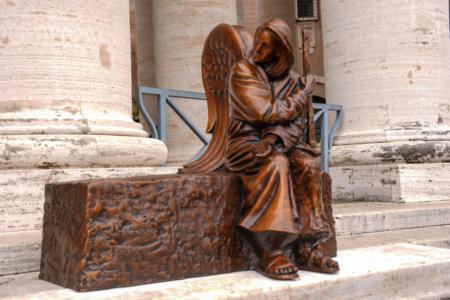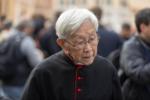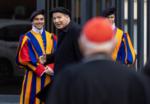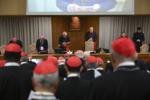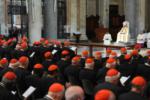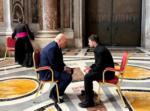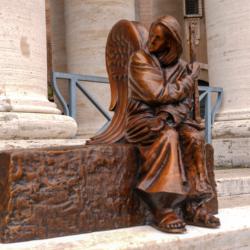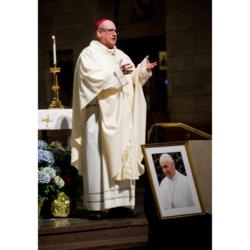Ignorance or contempt?
In a Dec. 6 audience with Polish bishops, the pope reiterated the Church’s expectations for Catholic politicians.
“People in public life must bear courageous and coherent witness to Christian values, which have to be affirmed and defended when they are threatened. They must do so publicly, both in political debates and in the communications media.”
How far that standard is from what we are used to hearing from many Catholic politicians! The latest among many potential examples are Boston Mayor Thomas M. Menino’s remarks on the Church’s teachings on abortion and same-sex marriage.
In a Nov. 29 article in The Boston Globe, the mayor says that the Church should not interfere in issues that involve the civil rights of the entire population.
“When the Church tries to exert political pressure to bring civil policy in line with its teachings,”Menino said, “I can argue with them, and I can not respect them for those decisions.”
“When the pope speaks on doctrine, that is absolute,”Menino said. “I don’t think choice and gay marriage are doctrine.”
Beyond the fact it was incorrect, what could lead one to make such a statement?
In a 1960 speech, John F. Kennedy asserted that he was a staunch believer in the principle of the separation of church and state and that, should he be elected, “no Catholic prelate would tell the president how to act.”He also made it clear that he would make his decisions following what he believed would be in the national interest, “without regard to outside religious pressures or dictates.”
That speech has prompted the development of a body of thought to explain the actions of subsequent generations of Catholic politicians who have supported —and sometimes promoted —laws that directly contradict core tenets of natural law.
The key issues of the day, as Kennedy enumerated in his speech, included birth control, divorce, censorship and gambling.
Kennedy’s speech was delivered in the pre-Roe vs. Wade America. In the 1970s, Catholic politicians were forced to deal in a new way with an issue of life and death: Abortion.
For the most part their decision was to continue the “Kennedy doctrine,”and so separate their Catholic beliefs from their political actions.
After the late New York Archbishop John J. O’Connor publicly disputed Gov. Mario Cuomo’s support of state funding for abortions for the poor, the governor responded in an address delivered at Notre Dame University in 1984. In it he gave new life to the Kennedy compromise. He said that even though he would never be part of an abortion as an individual, he believed that “legal interdicting of all abortions by either the federal government or the individual states is not a plausible possibility and, even if it could be obtained, it wouldn’t work.”He believed that religious values should not be “used to support positions which would impose on other people restrictions they find unacceptable.”
Cuomo’s doctrine has become the salve to appease the consciences of a new generation of Catholic politicians in the current abortion era. It has grown beyond abortion to encompass the new set of morally problematic issues that have arisen since 1984, particularly embryonic stem-cell research and same-sex marriage. The slogan for that generation is “I am personally opposed, but I cannot impose my beliefs on others.”
The Cuomo doctrine has been clearly contradicted by the recent teachings of the Church. In a 2002 document from the Congregation for the Doctrine of Faith entitled “Doctrinal Note on Some Questions Regarding the Participation of Catholics in Political Life,”it states that “those who are directly involved in lawmaking bodies have a grave and clear obligation to oppose any law that attacks human life.”
The document clarifies that a well-informed Christian conscience cannot separate “Catholic doctrine on faith and morals.”
It says that this is especially true when dealing with “fundamental and inalienable ethical demands”concerning “the integral good of the human person.”The document explicitly cites each person’s right to life —including the unborn—and “analogously”the protection and promotion of the family “based on monogamous marriage between a man and a woman.”
We have to wonder if politicians’lack of understanding of Church teachings is based on ignorance, or on the other extreme, contempt for the teachings of the Church. We can only guess that in many cases it is neither, but purely a lack of interest in pursuing the truth.
